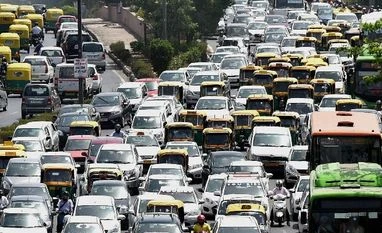The Delhi government on Sunday claimed that the rate of compliance in the second phase of the odd-even car-rationing scheme was "higher" compared to its first round and 5,814 challans were issued in the first nine days.
In the last edition of the scheme, 6,768 challans were issued in the corresponding period, it said.
The Aam Aadmi Party government is facing criticism from the opposition due to "increasing" volume of traffic on roads, following which it recently asked Public Works Department, Delhi Metro and Delhi Jal Board to carry out their construction and repair works at night to avoid traffic jams.
"If we compare the data, rate of compliance is higher in second phase of odd-even scheme with issuance of 5,814 challans while in first phase, there were 6,768 challans issued by concerned authorities," a senior government official said.
Both the enforcement wing of the transport department, which had been assigned with prosecution work in the first phase, and Delhi Traffic Police have been empowered to challan the errant drivers.
Unlike during the first phase, sub-divisional magistrates (SDMs) are not prosecuting motorists for violating odd-even rules during the the fortnight-long scheme, which came into force on April 15, this time.
Also Read
According to data released by the government, enforcement wing and traffic police have issued 2,962 challans and 2,852 challans, respectively, to motorists so far, while traffic police, SDMs and enforcement wing had imposed a fine on 6768 violators in the January edition.
Sources said that the numbers of challans may be less during the second phase of odd-even scheme as SDMs are not prosecuting the errant motorists this time for violating the rules.
On the first day of second round of the road-rationing plan, transport department and Delhi traffic police had prosecuted 1,311 motorists while only 215 violators had been fined on first day of its first round, implemented from January 1-15.
On Saturday, the Delhi government constituted a six-member committee to study traffic congestion during the ongoing odd-even scheme.
)